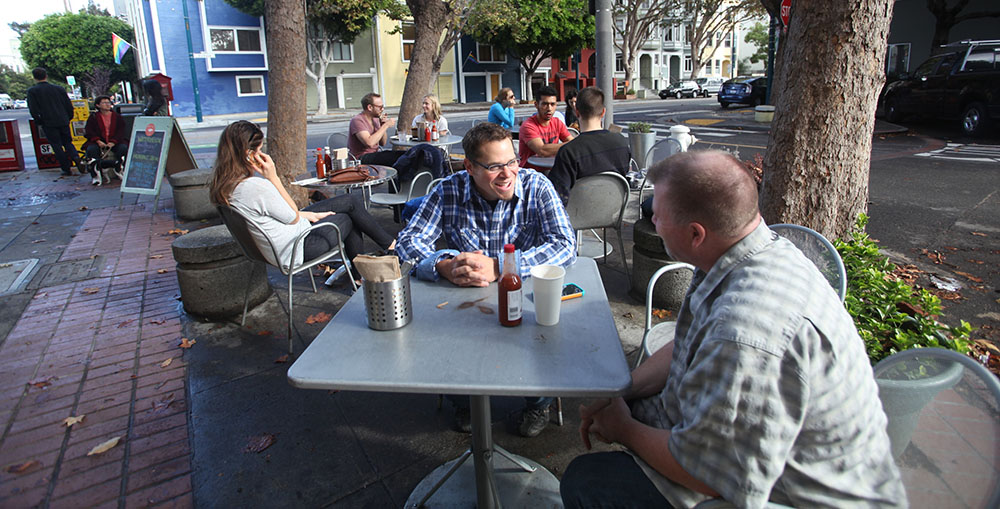By Dino Senesi
Learn to coach by coaching
“Too many times we try to teach people to swim in a classroom.” I heard my first coach, Bob Logan, repeat this many times. Every church planter needs a great coach. But where do we start the process? We put coaches to work immediately.
The One Day Coaching Map is better described as “orientation” than training. Most of the day is invested in coaches coaching another attendee. Five new coaches who attended, at Passion Church in Montreal, left with a coaching assignment.
Planters benefit from learning to coach and being coached at the same time. NAMB and CNBC church planter catalyst, Jacques Avakian, described the value of coaching: “Coaching has positively influenced the relationships between church planters. Peer-to-peer coaching has created new relationships, strengthened existing ones and has motivated our planters to want coaching.”
Recently, active coaches met for part of a day at Passion Church to evaluate their coaching as individuals and as a team. Coaches often make the mistake of relying on the personal experience alone to help them coach. Meeting with active coaches is vital to the health and development of coaching in the region. Coaches must own the outcome of their coaching and be passionate about improving.
Coaching every church planter
Woody Wilson is the coaching champion and a partner-supported missionary in Quebec. Six church planters are among the many leaders Woody coaches. He applauds the coachable spirit he has discovered in Quebecois church planters, describing them as “some of the most humble, coachable men I’ve met.” Woody speaks French fluently and is a seasoned missionary. Language and culture provide the most significant coaching challenges. Here are Woody’s observations:
- Every church planter should be coached in his heart language. A significant number of French Canadians are bilingual while some speak French only. But for coaching to be effective, being coached in the French language is important.
- Coaching must be culturally relevant. Quebec has a unique religious, social and emotional culture. Coaches that miss the culture will not help the church planter move closer to accomplishing his God-given vision.
Every church planter needs a coach. And every coaching relationship has unique cultural challenges to overcome. NAMB provided all the Coaching Map training materials in French, including a new resource, Coaching 101.
Our vision is to deliver great coaching to every planter. Over half of the NAMB church planters in Send Cities are classified as language or ethnic. Providing great coaching for any church planter is a challenge. To provide great coaching for every church planter is a God-sized task.
“My coach is for me and is a real blessing,” says Benoit Marcoux, pastor and planter of Com-Jesus Church in Quebec. “First, it is not often we have a time when someone takes care of us. I love the connection with him. I feel appreciated and loved by him; he is a human. Second, I have a coach who is humble with great experience in ministry. He asks really good questions to help me explore important parts of my life. The coaching process is necessary for every planter who wants to stay on track.”
Embracing the why
Paul described his great passion and commitment to those God planted in cities for the sake of the gospel. Philippian Christians got the message: they were not alone. In spite of Paul’s laser-focused vision on God’s mission, gospel partnerships were critical.
Everything we do is built on the belief that no planter should plant alone. We are bound by biblical ethic to love, support and equip those families God sends. We abide with them through the wins and losses of church planting. Together, as partners in the gospel, we say to church planters, “We want you to succeed at what the King has assigned you to do.”
Dino Senesi is the director of coaching for the North American Mission Board.
The article was adapted from an article posted in the Canadian National Baptist Convention’s Horizon magazine.
Published April 21, 2017
